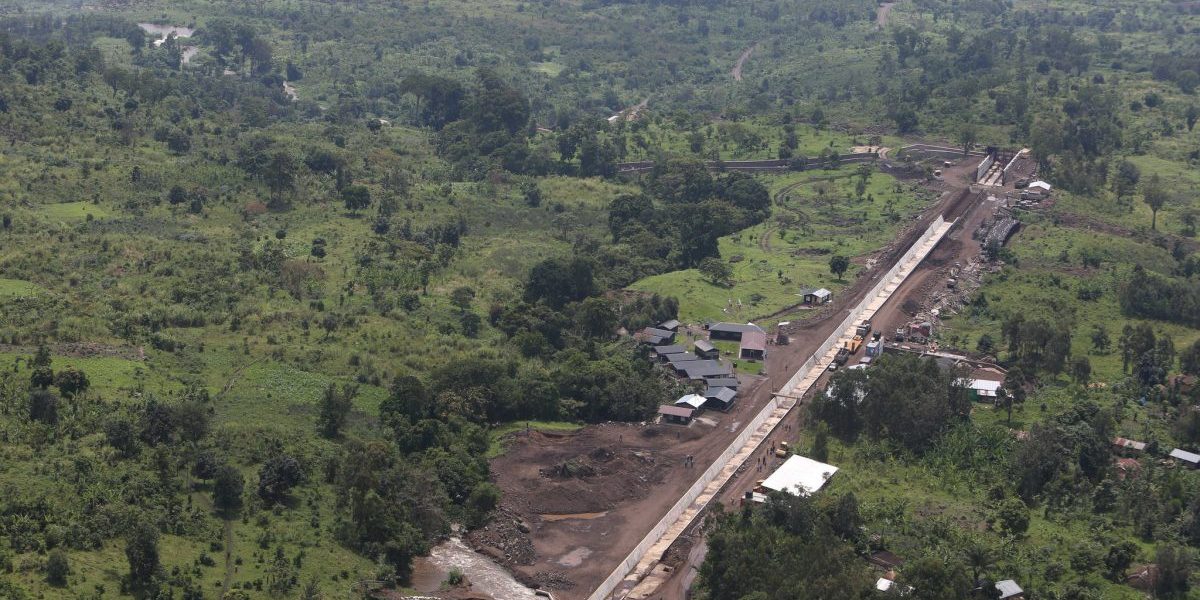A new book, containing chapters from SAIIA researchers Dr Ana Alves and Dr Agathe Maupin, looks at Sub-Saharan Africa’s potential energy resources in this light.
From fossil fuel deposits to dams and waterways, Sub-Saharan Africa possesses vast potential for energy resources to be further exploited. Whilst the Global North is a traditional player in the sub-Saharan energy sector, new actors from emerging economies – especially China’s state-owned enterprises but also Brazilian, Indian and South African giants – have entered what appears to be a scramble for the largely untapped energy resources of the region.
This book is the first to bring together comparative perspectives on:
- The strategies of state and non-state actors involved in the exploitation of sub-Saharan energy resources.
- The potential and pitfalls of new forms of cooperation on energy southwards of the Sahara.
- The domestic opportunities and challenges of the present energy resource boom.
Dynamics on the international level are brought together with local developments to provide up-to-date insights on the scramble for energy resources in sub-Saharan Africa. This book also advances a materialist approach applicable in geographical and political-scientific research, showing that much insight can be gained by concentrating on the material environment that shapes economic and political phenomena.
Contents
- Introduction, Sören Scholvin
- British and US strategies in the competition for energy resources in sub-Saharan Africa, Stefan Andreasson
- China and Brazil in sub-Saharan African fossil fuels: a comparative analysis, Ana Cristina Alves
- Energy and regional integration: the Grand Inga Project in the DR Congo, Agathe Maupin
- Energy from across the border: explaining South Africa’s regional energy policy, Sören Scholvin
- Mammoth dams, lean neighbours: assessing the bid to turn Ethiopia into East Africa’s powerhouse, Iván Cuesta-Fernández
- The resource curse debate after Mozambique’s emergence as an energy exporter, Artur Colom-Jaén and Eduardo Bidaurratzaga-Aurre
- Fracking the Karoo: the barriers to shale gas extraction in South Africa based on experiences from Europe and the US, David Fig and Sören Scholvin
- Conclusion, Sören Scholvin
About the Editor
Sören Scholvin (PhD, University of Hamburg) is a research fellow at the Institute of Economic and Cultural Geography at the University of Hanover. He is also an associate research fellow at the German Institute of Global and Area Studies, Hamburg. He has published The Geopolitics of Regional Power: Geography, Economics and Politics in Southern Africa in the same series as this edited volume. Sören’s research is focussed on the geopolitics of emerging powers, and regional cooperation on energy and transport in sub-Saharan Africa and South America.
Reviews
‘By putting energy front and centre of analysis, this book crafts new analytical pathways into International Political Economy (IPE) debates that often both neglect Africa and the significance of energy as the basis for the continent’s growing significance to the global economy. As such, it makes innovative linkages to debates regarding environmental sustainability, the resource curse, geopolitics and development cooperation.’
— Janis van der Westhuizen, University of Stellenbosch, South Africa
‘Finally a book in social sciences with a holistic approach to energy resources! This volume compares the strategies of the key players in the struggle for Sub-Saharan energy resources: Brazil, Britain, China and the United States. It sheds light on the domestic impacts of resource booms in Mozambique and South Africa, and critically evaluates the potential for regional cooperation on energy. It is a very valuable contribution to an otherwise fragmented debate.’
— Robert Kappel, GIGA – German Institute of Global and Area Studies, Germany
‘The editors have put together a sharply focused treatment of the role of energy in the new scramble for Africa. The book captures in great detail the varied experiences across the continent while retaining an overall intellectual coherency. I strongly recommend it.’
— Chris Alden, London School of Economics, UK








